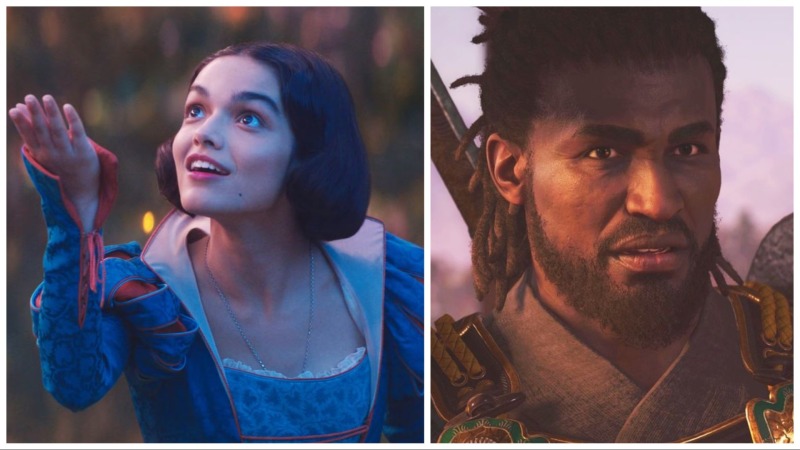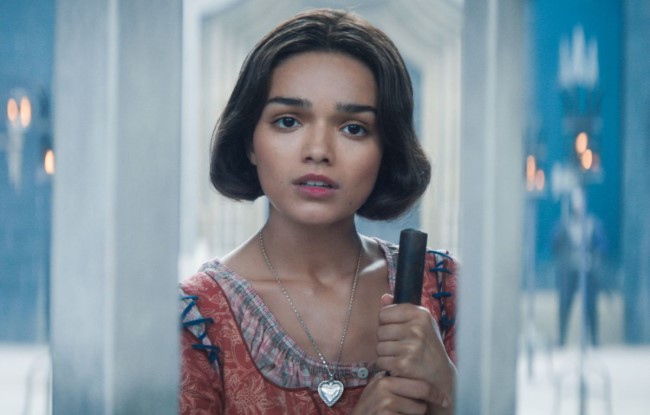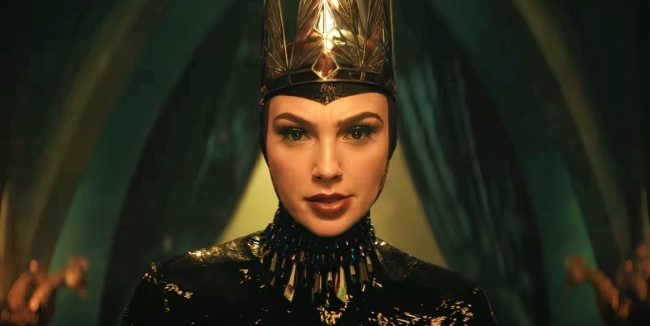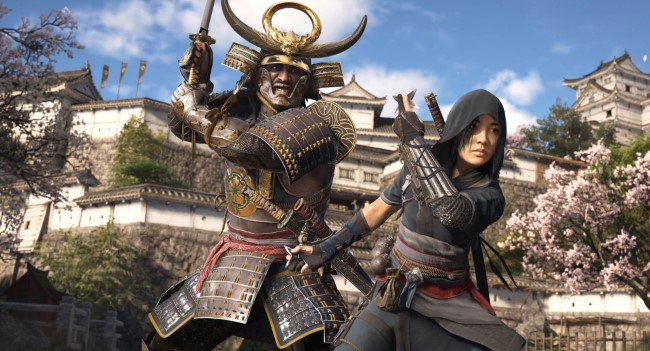Political Partisanship Has Ruined the Ability to Honestly Evaluate Entertainment

The culture wars have had many casualties. They’ve destroyed, among other things, the ability of the average American to hold politicians–and each other–to concrete and consistent standards of behavior. They’ve caused the rapid flip-flopping of loyalties on consumer fronts, as in the swarms of right-wing Americans now falling over themselves to buy and defend Tesla cars after decades of deriding electric vehicles. And they’ve even deeply impacted our ability to evaluate and critique the entertainment we consume on a daily basis, be it movies, TV, music, videogames, etc. I’m not even referring to critiques from a standpoint of “this is objectively good or bad,” either. Rampant political partisanship has made the average American struggle with an even more basic assessment of “Do I honestly enjoy this,” or “Did I really dislike that?” Having our identities so rooted in tribalism has increasingly obliterated the luxury of having an opinion of one’s very own, with consumers instead turning to culture war-peddling influencers and pundits to tell them what they should think about a film, a show, or a game.
In a way, you could think of this as the next phase of evolution for a dynamic that was already quite damaging: The interaction between obsessive fandom and attempts at objective criticism or evaluation. Stan culture and the normalization of obsessive fandom for major media franchises had already resulted in so many viewers attaching their own self-worth to massive corporate juggernauts such as the Marvel Cinematic Universe, resulting in those viewers being pathologically unable to view their chosen darlings in anything approaching an even glancingly objective manner. The result, of course, is the sort of fanatical devotion that makes a person send death threats and enraged screeds toward a writer who dares to pen an unemotional (but negative) review of a middling MCU sequel, or an uninspired album from a stan-shielded pop star like Taylor Swift or Beyoncé. This is a media landscape that many prolific entertainment writers have already adjusted to, knowing that they’re always running the risk of stirring a hornet nest of stans.
The intersection of political partisanship and entertainment, however, has become arguably an even worse dynamic, given partisanship’s ability to override even what would normally be a person’s innate, personal reaction to a piece of media, replacing that opinion with whatever hews to the prescribed stance of their political tribe. It invites a film, TV or videogame consumer to entirely cut themselves out of the process of critiquing a piece of art, instead turning the assessment of that movie or game into an elaborate checklist of what standards any given piece of media passes or fails in the arena of the culture wars. The ultimate result is cognitive dissonance: People being told or convincing themselves that they “should like” something they simply don’t, or “should hate” something they legitimately enjoy. It’s a process that delegitimizes the consumer and simply turns them into pawns.
In the world of film, the latest title to encapsulate the phenomenon is of course Disney’s Snow White, an attempt at universal, all-sides-pleasing pablum that spun wildly out of control thanks to the partisan-fueled, dueling media narratives about the movie. In some respects it’s ironic that a movie like Snow White could ever end up a lightning rod for controversy at all, as multinational megacorporation Disney’s top priority for the remake of an 88-year-old animated classic would no doubt have been to court the biggest, most diverse market without intentionally alienating any potential customer willing to fork over their money. And yet, Snow White steadily morphed into the cinematic equivalent of its own poisoned apple, drawn into bad-faith online debates about the ethnicity of its star Rachel Zegler, her position on the Israeli-Palestine conflict, her negative comments about the 1937 original, and even the role of dwarf/little person actors in portraying the Seven Dwarfs of the original story, an issue Disney eventually chose to largely sidestep by portraying the characters as uncanny CGI monstrosities. All of these issues gradually crystallized partisan camps both for and against the film, based almost entirely on issues having nothing to do with the movie’s actual content or merit.

Zegler, a star of Spielberg’s West Side Story and The Hunger Games: The Ballad of Songbirds & Snakes, found herself as the lightning rod at the center of the controversy, some of which was absolutely self-inflicted–particularly her (fairly mild and accurate) criticism toward the 1937 film, which can’t help but be dated in many aspects by any modern standard. Nevertheless, her comments opened her up to targeting from right-wing influencers and pundits, who found an opening to more indirectly racially criticize the casting of a woman of Colombian descent as Snow White through claims that she was denigrating the legacy of an iconic character. Zegler’s subsequent social media posts in support of Palestine likewise attracted the ire of Disney’s PR machine, and potential friction with Israeli costar Gal Gadot. As was the case with director Nia DaCosta following the box office bomb of 2023’s The Marvels, Disney effectively has responded by throwing Zegler under the bus in leaked quotes from unnamed sources, with Disney-tinged pieces like this one in Variety laying the disappointing opening box office weekend of Snow White at the feet of Zegler’s supposed unprofessionalism, unpredictability and lack of media savvy.
Subsequently, the battle lines of the culture war are drawn: Right-wing partisans get their marching orders to hate and criticize Snow White, and left-wing partisans mobilize to support and defend it in knee-jerk fashion. And everyone potentially loses. The MAGA audience ends up forced to hurl vitriol at a film with music and choreography that they (or their kids, the original intended demographic) might really have enjoyed, had they approached it with an open mind. The liberal audience, meanwhile, feels compelled to step in and defend a film they otherwise would have been more likely to label as a soulless, shiny corporate bauble with garish design choices, for no other reason than being diametrically opposed to the right-wing dogpile. As a result, I would expect voter registration to correlate neatly with a positive or negative opinion of Snow White, before the people in question have ever seen it.
Entertainment media, meanwhile, jump on board for opportunities to fan these partisan flames and feed the intensity of the culture war, in the name of the clicks this baiting generates. Just this week, it became a major news story carried in entertainment outlets all over the country when a son of one of the Snow White producers–not even a person involved directly in the film–publicly blamed Zegler for its box office results. These media outlets know that the hyper partisan right-wing readers wants headlines about how the young woman of color ruined a big, expensive, would-be blockbuster so they can post various “go woke, go broke” slogans in Disney’s direction. And they simultaneously know that the hyper partisan left-wing readers are drawn in by those exact same headlines, so they can react to the same story in outrage rather than delight, criticizing Disney for throwing Zegler under the bus and failing to stand up for their star. Perpetuating these kinds of knee-jerk partisan reactions to art is a good business for so many of these major entertainment publications.

The whole debate about a film like Snow White ultimately overlooks the fact that is so often the case with these things, which is that the true value/relative worth of any given piece of media almost inevitably falls somewhere in the middle, far away from the partisan hacks screaming either “disaster” or “masterpiece” from the right and left sidelines. Look no further than Paste’s own tepidly positive review from Associate Movies Editor Jesse Hassenger, which praises elements like the implementation of music and modernization of some of the film’s themes, while criticizing the garish visuals of the CGI dwarves and Disney’s understandable but frustrating attempts to please polemically opposed viewers. And you know what? As Paste’s film editor, I know before hitting publish on a review like this one that this kind of median, thoughtfully considered stance will inevitably draw fewer clicks than the review would if it was either a full-on, scathing pan or an ecstatic paean of praise. There are rarely rewards to approaching these tasks with objectivity and a perspective that is detached from partisan grounding–not in a media landscape where readers are seeking out either praise or condemnation to feed their addiction to tribalistic squabbling. The reality, of course, is that most media doesn’t deserve such a bombastic reaction: Most of it falls squarely into the category of “mixed effectiveness” or “blandly unremarkable,” but that nuanced reaction is more difficult to sell and attracts less attention.
Nor is this phenomenon constrained to the world of film by any means. In the same week that the Snow White discourse is making its ugly way across the shattered remnants of Twitter and the entertainment media, the world of videogames is seeing suspiciously similar headlines related to the recent release of Assassin’s Creed Shadows, the latest entry in the long-running Ubisoft RPG series. Again, a significant portion of the user base ends up becoming diametrically opposed and polarized on an almost perfectly left-right correlation, all because the game studio dared to conceive of a game set in Medieval Japan with primary protagonists that are a female ninja and an African samurai, based on an actual historic figure. This perhaps unsurprisingly threw the Gamergate-adjacent, virulently racist right-wing influencer cadre (all the way up to Elon Musk) into an uproar with cries of “woke,” leading to promises of boycotts and doomsday predictions about the game’s sales and viability. As is tradition, the right-wing commentariat managed to get itself all worked up and performatively angry about issues such as which characters the player is allowed to (electively) romance, incensed by the presence of any potential same-sex relationships, even when they’re purely a function of player choice.

As in the film world, this puts the other partisan side of the coin in an awkward position where they feel compelled to defend, or even purchase and play a game like Assassin’s Creed Shadows whether or not they have any particular interest in it, out of sheer principle. Money talks, in this arena: The sales of a game like Shadows are used as presumed justification for whether things like “minority protagonists” or “same-sex romance options” are included in future entries in these series, or by other major game studios in similar games. Right wing partisans aren’t shy about stating that by boycotting, they hope to drive “woke” elements out of the big-budget videogame industry by making those games financial failures. Left wing partisans are equally vocal about financially supporting these games for the exact opposite reason, fearful that a company like Ubisoft could be cowed into abandoning these elements by a far-right pressure campaign. Too often lost in the hubbub: Substantive evaluation of the games themselves, elements of core gameplay and artistic direction/execution that aren’t tied to hot-button social talking points. That is again the more difficult form of criticism to sell to a consumer base that has become dependent upon a steady flow of outrage in either direction in order to hold their attention.
This dependence upon political partisanship to inform our stances on nearly every aspect of our lives is a blight on the ability of American citizens to live a genuinely individualistic existence, and even to form one’s own opinions. Are there aspects of life and actual politics where I would concede that I hew to a fairly partisan bent? Certainly. But of all things to apply that singleminded approach to, does a trite live-action Disney remake like Snow White really deserve to be assessed that way? Can’t it just be a disposable piece of family entertainment, regardless of a person’s hot-button issues and pet peeves? Is the 14th major installment in a videogame series approaching its 20th anniversary a political battlefield worthy of the shedding of blood? Or would life be a little bit better if you could approach a movie or a videogame as simply another piece of entertainment that deserves the most objective analysis you can give?
At the end of the day, our freedom to think for ourselves does still exist. And we ought to use it, rather than delegating that responsibility to some social media influencer making a living off enraged engagement.
Jim Vorel is Paste’s Movies editor and resident genre geek. You can follow him on Twitter or on Bluesky for more film writing.







































